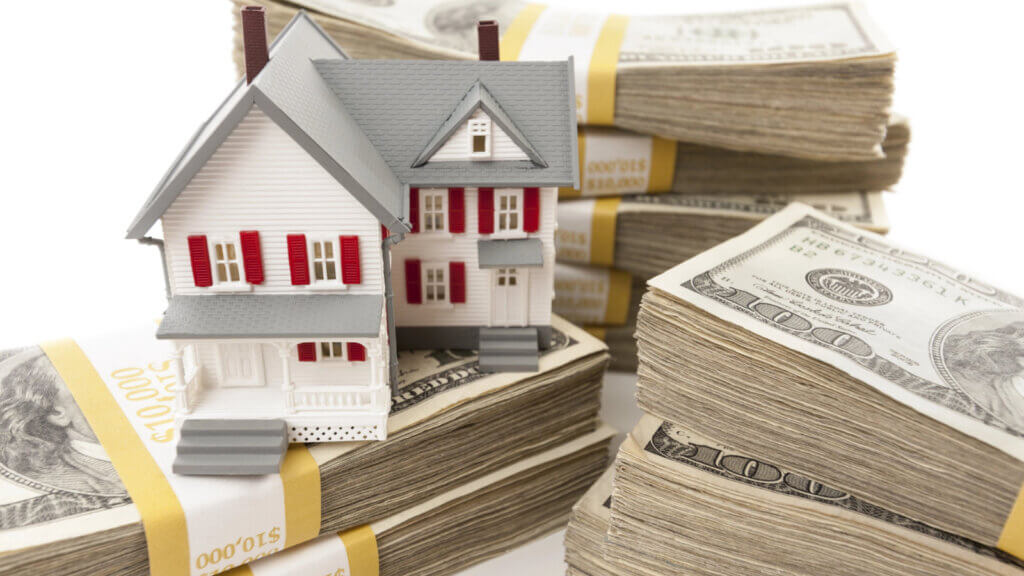Get a Guaranteed Cash Offer on Your Timeline, So You Can Move with Certainty.
"*" indicates required fields

Discovering termite damage in your home can feel like a nightmare. This common yet serious issue, often caused by relentless wood-eating insects like subterranean termites, can swiftly derail a traditional home sale. The mere mention of a termite infestation sends shivers down the spines of potential buyers and can lead to significant financial headaches for you as the seller.
This guide will explain:
Termites eat wood. Their activity can lead to considerable damage to wooden structures, from floor joists to support beams. Understanding the reality of termite problems is crucial when thinking about selling your property.
It's vital to distinguish between termite treatment and repairing termite damage. Termite treatment, often involving liquid termiticides or bait systems, focuses on killing termites and eliminating the termite colony. Treating active termites, however, doesn't fix the damage they've already caused, according to the United States Environmental Protection Agency. Repairing termite damage means replacing damaged wood and addressing any structural issues.
When selling a house, disclosure of termite history is essential. You are legally required to inform potential buyers about any past or present termite activity, including details of termite treatments and repairs.
Even if your home has been successfully treated for termites and you have a termite warranty or "termite bond," the termite history of an infestation can still deter many buyers. The stigma associated with a house with termite problems can significantly narrow your pool of interested buyers.
Early detection of termite activity can help prevent severe infestations and costly repairs. A professional termite inspection is the most reliable way to identify termite activity and assess the extent of the damage. Here are common signs of termite damage:

Understanding the type of termite infestation is crucial for effective termite treatment. Each type requires a specific approach from a pest control company.
| Termite Type | Characteristics | Common Locations |
|---|---|---|
| Subterranean Termites | The most common and destructive type; build extensive mud tubes and live in large underground colonies. | Foundations, crawl spaces, and wooden structures in contact with soil. |
| Drywood Termites | Infest dry wood above ground; they leave distinctive termite droppings (frass). | Attics, wooden furniture, walls, door frames, and support beams. |
| Dampwood Termites | Prefer damp wood with high moisture content. | Areas with water leaks, poor ventilation, and decaying wood. |

Attempting to sell a house with termite damage through traditional channels often leads to a frustrating and expensive process:

| Benefit | How It Works |
|---|---|
| No Treatment or Repairs Needed | You won't have to call an exterminator or contractor. We assess the termite damage and necessary repairs, factor it into our fair cash offer, and handle all the work ourselves. This saves you from pest control company bills and the hassle of repairing termite damage. |
| Structural Damage is OK | Unlike traditional buyers, real estate agents, or even other cash buyers, we aren't deterred by structural issues or foundation damage caused by termites. We specialize in buying as-is properties, even those with significant damage. |
| Bypass the Stigma | Your sale is fast, private, and direct. You won't need to worry about what conventional buyers might think about termite disclosure. We're experienced in dealing with houses with termite damage. |
| Guaranteed Closing | Get the certainty of a sale without the fear of a buyer backing out after a termite inspection. We provide a firm cash offer and a streamlined selling process for a smooth and efficient transaction. |
No. A professional termite inspection can be beneficial for your own understanding. But it’s not required when selling to iBuyHomes. We conduct our own assessments to determine the value and condition of the house with termite damage.
A transferable termite warranty can be a selling point for traditional buyers. But it’s not necessary for us. We assess the property’s current condition, whether there’s an active termite infestation or past termite history, and factor that into our offer.
The impact on value depends on the severity of the infestation and the extent of the damage. Minor damage might only require cosmetic repairs. However, significant damage to wooden structures or the home’s foundation can severely reduce its value and lead to costly repairs. The hidden costs and the difficulty of selling outweigh the perceived value lost.
Subterranean termites build mud tubes and often cause damage to structural wood in contact with the ground or in crawl spaces. Drywood termites infest dry wood above ground, and their damage can be harder to detect initially, often evidenced by their distinctive termite droppings. Both can cause significant damage and require professional treatment.
Buying a house with termite damage can be problematic due to potential structural damage, high repair costs, and difficulties with financing. A professional termite inspection is crucial to understand the extent of the termite infestation before buying.
Termite damage can significantly reduce a house’s value, ranging from minor cosmetic issues impacting appeal to severe structural damage requiring extensive and costly repairs, potentially leading to tens of thousands of dollars in devaluation depending on the extent of the termite activity and necessary termite damage repairs.